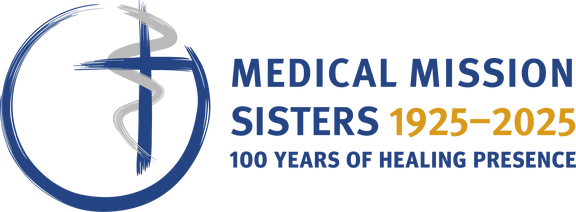Putting Healthcare Into The Hands Of The People
Thanks to a major grant received from Jugend Eine Welt through Austria’s Ministry of Social Affairs, Health Care and Consumer Protection, MMS’ project entitled, “Putting Healthcare into the Hands of the People”, which ended last month, has helped to strengthen integrated approaches to healthcare for poor and marginalised communities through the Rubanda Primary Health Care Programme (PHCP), South Western Uganda. Sister Suzan Asinde, who managed the funded activities, reports that over 18 months, something has changed in people’s lives and their way of thinking and living, both in families and as individuals. She gave the following examples of this:
- The health education trainings increased knowledge among different target populations on topics ranging from: maternal and infant care; the importance of good nutrition and positive living; to the prevention of communicable and non-communicable diseases. A total of 11,460 people were encouraged to improve their health and hygiene practices, including by avoiding the risks of COVID-19. For example, communities were taught how to make liquid soap to ensure regular handwashing at home;
- The youth camps for young people living with HIV and their peers proved life-changing. Sports were used to break down barriers of stigma and discrimination that young people living with HIV in the region face daily. Peer educators also encouraged more young people living with HIV to come forward for regular clinic appointments, adhere to their antiretroviral treatments and strengthen their resilience;
- Our campaigns against Gender-Based Violence (GBV) have brought about a noticeable decrease in the number of local cases of domestic violence. In tackling this issue, Sister Suzan and her team were particularly grateful for support from local council chairpersons who assisted in selecting 23 men and 23 women from 23 communities to train as champions in combating GBV. Through the campaigns, men and boys became much more aware the rights of women and girls and the importance of treating them with greater respect. Some men even pledged to begin peace campaigns from their own homes because most of the time, they acknowledged that they are the chief cause of violence in homes;
- According to local prison officers, our prison visits and rehabilitation services have contributed to fewer crimes being committed in villages. One prisoner, who was always returning to prison after being released, declared that this time he wanted to reform fully and become a different human being. When he went home, his mother said that for the first time, he slept there. This was amazing to hear; the prisoner had been carefully prepared for post-release, transformed through spiritual care and the trusting relationship we built with him and, as a consequence, wanted to start living differently. Prisoner health was also improved; some prisoners, who came to know of their HIV status or TB diagnosis for the first time in prison, were helped to cope with the news and started on relevant courses of treatment, thanks to Rubanda’s PHCP team being able to provide them with free medicines;
- The training in rabbit rearing and kitchen garden creation is likely to improve the health of local people, through diet, for years to come because women have learnt to grow plentiful supplies of fresh vegetables, have new sources of protein and can sell their surplus. Slowly, one can observe raised standards of living among vulnerable populations, living in this remote, mountainous region;
- Most popular of the women’s income-generating activities was handicrafts training, especially basket-weaving. As the women sat making baskets, they had time to talk, share ideas and support each other - for example, widow to widow. Given that the women would gather at MMS’s health facility during the training sessions, they also had an opportunity to receive other healthcare services and screenings which, in turn, also increased their sense of well-being; and
- Finally, one income savings group of about 50 people was formed and it is already proving self-reliant.
A closing workshop gave Sister Suzan and Rubanda’s PHCP implementing team an opportunity to make local people feel proud of all that they had achieved, as they shared their stories and feedback with local officials and community leaders. A deep sense of gratitude was extended to Jugend Eine Welt for its support in enabling healthcare to be put in the hands of the people and to the Austrian Ministry of Social Affairs, Health Care and Consumer Protection for funding this exciting initiative.
